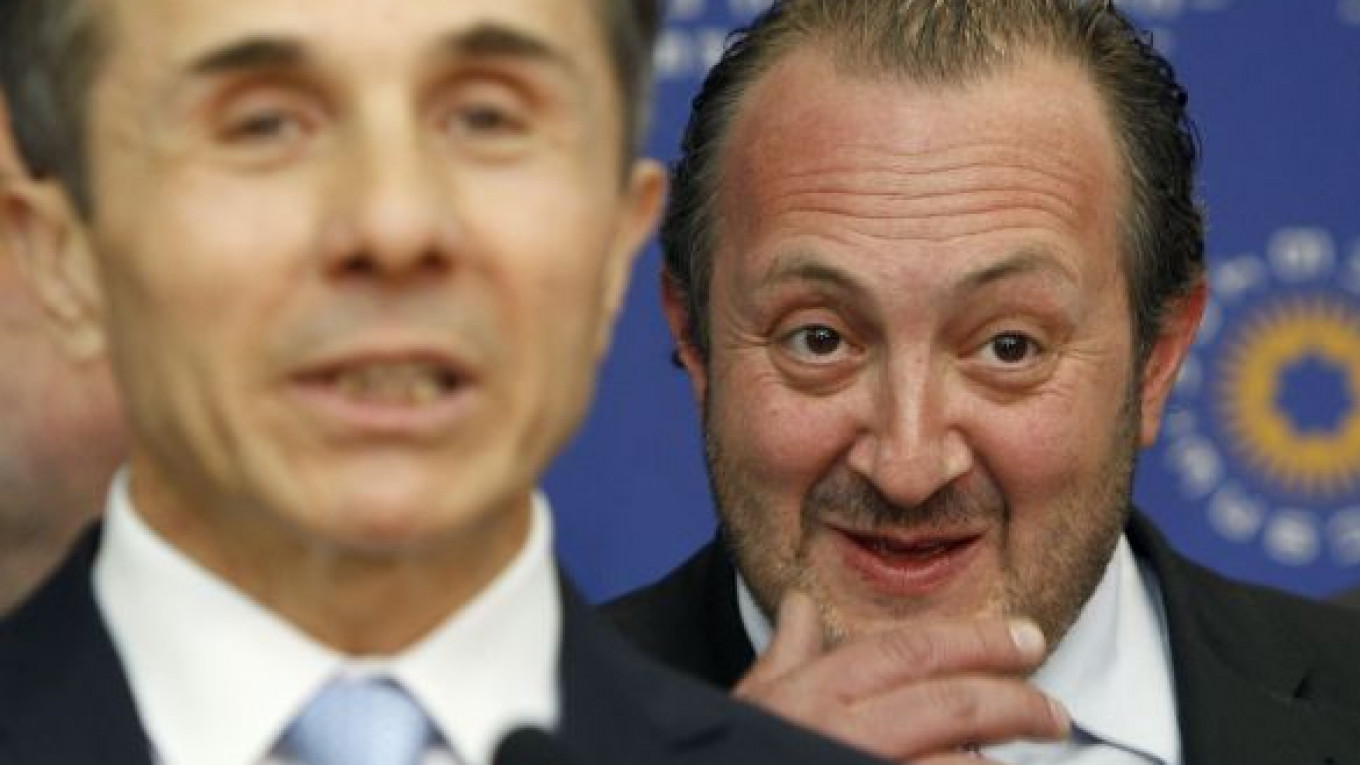TBILISI — Georgian Prime Minister Bidzina Ivanishvili on Saturday named a pro-Western ally as the ruling party candidate for October's presidential election, in which incumbent Mikheil Saakashvili is barred from running.
Ivanishvili's Georgian Dream coalition won control of parliament in October last year, defeating the party of Saakashvili, a leader of the 2003 Rose Revolution protest movement. Georgian Dream is the favorite in opinion polls to take the presidency.
Friction between Ivanishvili and Saakashvili has threatened stability in the former Soviet republic, a conduit for pipelines pumping Caspian Sea energy westward and a platform for geopolitical rivalry between the United States and Russia. Georgia fought a brief war with Russia in 2008.
Constitutional changes that take effect after the new president is inaugurated will increase the powers of the prime minister at the expense of the president.
Ivanishvili said Georgian Dream had chosen Giorgi Margvelashvili, an academic who is education minister and a deputy prime minister, as its presidential candidate.
Margvelashvili, 43, has been a vocal critic of Saakashvili. He was rector of the Tbilisi-based Georgian Institute of Public Affairs (GIPA) from 2000-2006 and again in 2010-2012.
"We did not even discuss any other candidates … No one was against his candidacy," Ivanishvili told reporters.
The billionaire tycoon-turned-prime minister had previously said of Margvelashvili: "Whenever I come across difficulties I always call Giorgi and ask him [for advice]. I have two or three such people with whom I can sit down and talk about any issue and any problem."
Saakashvili's United National Movement party has yet to name a candidate in the presidential vote. Saakashvili has served the constitutional limit of two terms.
A Message from The Moscow Times:
Dear readers,
We are facing unprecedented challenges. Russia's Prosecutor General's Office has designated The Moscow Times as an "undesirable" organization, criminalizing our work and putting our staff at risk of prosecution. This follows our earlier unjust labeling as a "foreign agent."
These actions are direct attempts to silence independent journalism in Russia. The authorities claim our work "discredits the decisions of the Russian leadership." We see things differently: we strive to provide accurate, unbiased reporting on Russia.
We, the journalists of The Moscow Times, refuse to be silenced. But to continue our work, we need your help.
Your support, no matter how small, makes a world of difference. If you can, please support us monthly starting from just $2. It's quick to set up, and every contribution makes a significant impact.
By supporting The Moscow Times, you're defending open, independent journalism in the face of repression. Thank you for standing with us.
Remind me later.






